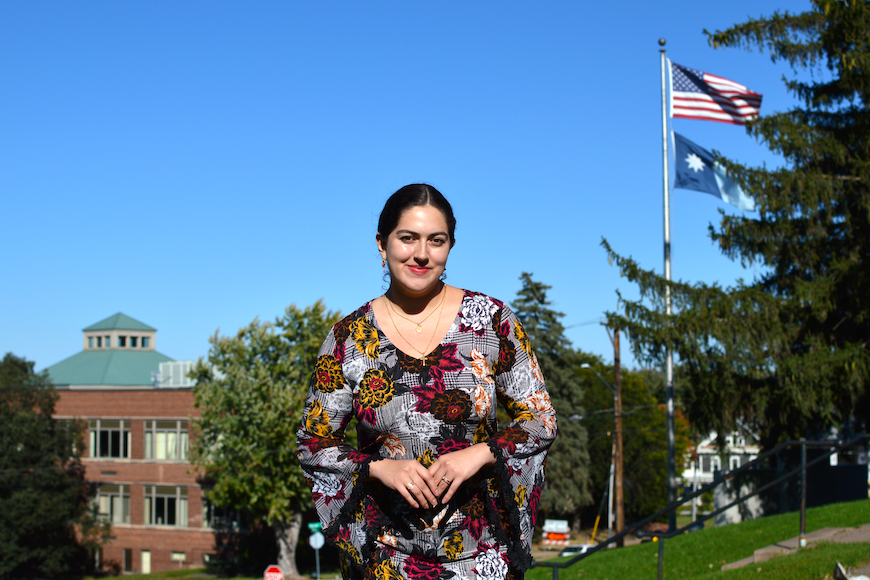Legal Lessons: A Political Scientist's Dive into Domestic Violence Advocacy
Linda Parranto Vital, a fifth-year PhD candidate in political science with a focus on comparative politics and international relations, had an internship at the social services organization Tubman in Maplewood, Minnesota. Her role as an assistant legal advocate allowed her to bridge the gap between academic research and hands-on experience, supporting survivors of domestic violence through the complexities of the legal system.
What were your main job responsibilities?
As an assistant legal advocate at Tubman, I tracked every hearing involving misdemeanor domestic assault in Washington County over the summer. Many of these hearings are part of ongoing cases involving clients we already have advocate-participant relationships with, but we also monitor arraignments, so we can reach out to the parties involved to offer our support.
Meeting with participants usually includes safety planning and a conversation about a victim/survivor's desired outcomes related to their case. Contrary to common assumptions, many survivors do not wish to see abusers subjected to harsh sentences, and we communicate these wishes to prosecutors almost as often as we draft Orders for Protection restricting contact.
In line with my experience researching the accessibility barriers and re-victimization that occurs in the legal system—especially around gender violence—I have observed that our presence as legal advocates encourages survivors to “use” the rights they are entitled to, and stymies victim-blaming statements and behaviors in and around the courtroom.
How did you find your internship?
As part of my dissertation research, I was already interested in observing how advocates support those subjected to criminal legal proceedings in the aftermath of gender violence. I have studied the unique challenges experienced by survivors in Latin America but was eager for an opportunity to participate in local legal advocacy efforts.
I used a search engine to identify domestic violence advocacy organizations in the Twin Cities that were hiring interns or offering part time positions. This search was illuminating, because in addition to identifying potential internships, I also found several organizations hiring for full-time positions I would love to pursue after graduation. This includes Esperanza United, a Latina organization leveraging communities’ cultural strengths and resilience to end gender-based violence, where I have also started working as a part time family advocate. An informational interview with a Duluth-based advocate working with survivors of sexual assault helped me understand that any experience providing direct support to survivors, including in crisis settings was highly transferable even to higher level positions in the field. This further encouraged me to search for a role that would give me some of the experience I could only gain “in the field.”
How has this experience been relevant to your future career goals?
As part of my doctoral research, I have studied the accessibility and implementation barriers survivors and policy makers face as they navigate the criminal justice system in the aftermath of violence. Survivors of domestic violence often experience revictimization in the legal system when they encounter discrimination, victim-blaming, and apathy from state officials and bureaucrats. One promising avenue for decreasing the revictimization experienced during these processes is for advocates to serve as liaisons between state apparatuses and survivors.
Spending time this [summer] actually performing this work liaising between legal institutions and survivors has reaffirmed the relevance of this area of research to me, but has also confirmed for me that this is a career-path I am interested in pursuing after graduation.
I am grateful that the College of Liberal Arts helped me experience some of this work now, especially because the work of providing direct services to survivors of violence can be precarious and emotionally taxing. Now that I know I can do this kind of work directly and in community with others, I will be more confident pursuing careers in advocacy, knowing that this is where my research expertise and personal values best combine.
This story was edited by Regina Ramos-Francia Ylizaliturri, an undergraduate student in CLA.
